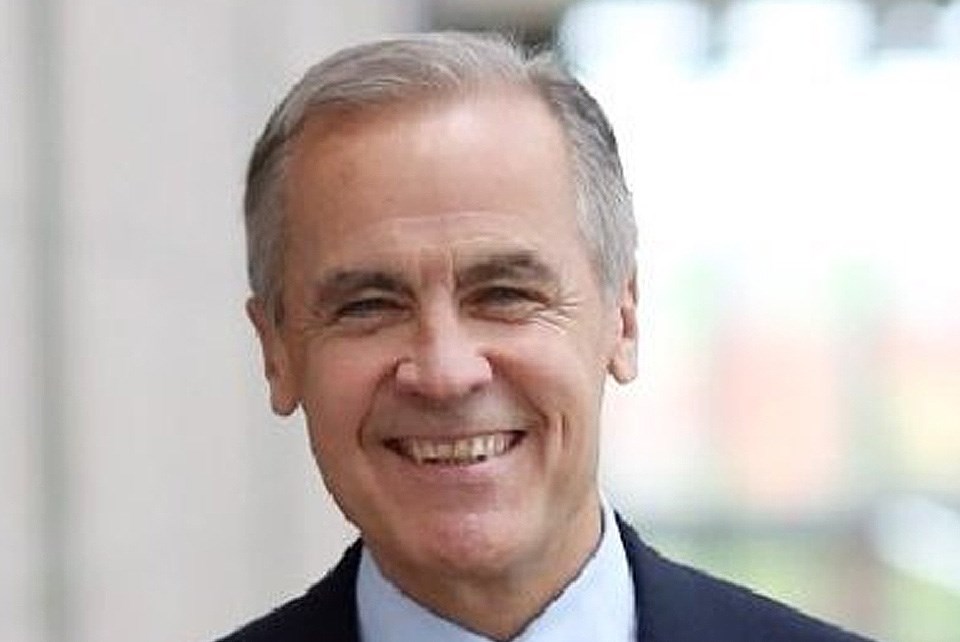As we head to the polls on April 28, Mark Carney is the man of the hour. But who is he really?
Is he the technocratic saviour whose cool competence is tailor-made for our current economic perils? Or is he a camouflaged ideological warrior, someone with an agenda that Canadians might be wary of endorsing if it was presented to them in undiluted form?
There’s little dispute about Carney’s intellectual chops, work ethic and financial experience. With 13 years at Goldman Sachs, consecutive stints as a central bank governor — both at the Bank of Canada and the Bank of England — and subsequent senior roles such as vice-chairman of Brookfield, Carney has worked at the highest, most sophisticated levels. When it comes to understanding the intricacies of international finance, his credentials are hugely impressive. I can’t think of a prime minister or head of government who comes close.
Still, a case can be made that Carney’s “financial rock star” reputation is somewhat inflated. For instance, his purported role in helping Paul Martin slay the federal deficit falls apart when one remembers that the deficit taming happened in the 1990s — years before Carney joined the Department of Finance. And a large component of his central banking endeavours revolved around quantitative easing, often figuratively described as “printing money.” However appropriate that may have been in the particular circumstances, it also helped fuel the asset boom that drove up the price of limited-supply tangibles like housing.
In fairness, though, most positive reputations contain a material amount of puffery. And holding Carney to a perfect standard doesn’t make us any wiser.
The relevant consideration is whether he lets personal ideology colour his counsel. When he gives advice or passes judgment, is it the savvy technocrat speaking? Or is everything being filtered through an ideological preference?
The answer to this question matters. Let’s take a look.
As governor of the Bank of England, Carney was a prominent public voice in the lead-up to the United Kingdom’s 2016 Brexit referendum. But some people believe he overstepped the mark — becoming an advocate for what was dubbed “Project Fear.”
For instance, he warned that a vote to leave the EU might plunge the U.K. into recession. It didn’t happen.
And as his Bank of England successor, Andrew Bailey, noted in 2023, some of the more “dire” predictions failed to materialize: “If you go back to the period after the referendum, there were pretty dire predictions about the consequences of Brexit for the financial services world… and I think so far those effects have been smaller.”
Then there’s climate change and the related imperative of hitting net zero. It’s something Carney feels passionately about. Just four years ago, he spearheaded the formation of GFANZ (the Glasgow Financial Alliance for Net Zero). And he was a major proponent of the consumer carbon tax.
But Steven Koonin — a physicist who served as Barack Obama’s undersecretary for science — has questioned the extent to which Carney’s net-zero enthusiasm influences his professional judgment.
In his 2021 book Unsettled: What Climate Science Tells Us, What It Doesn’t, and Why It Matters, Koonin refers to a speech where Carney used 2014 — an unusually wet year in England and Wales — as an omen of future extreme weather events, only to be confounded by the actual experience of the following half-dozen years.
While acknowledging Carney’s hedging use of terms like “forecasts suggest” and “future winters,” Koonin still has this to say: “Nevertheless, it’s surprising that someone with a PhD in economics and experience with the unpredictability of financial markets and economies as a whole doesn’t show a greater respect for the perils of prediction — and more caution in depending on models.”
For my money, how you view Carney comes down to your perspective on the last 10 years.
If you think Canada was generally well governed and had the right priorities, then Carney is an excellent fit for you. He’s smarter and more knowledgeable than Justin Trudeau and likely to be a much better manager. At the same time, he shares pretty much all of Trudeau’s ideological enthusiasms — and any daylight between them will be tactical rather than substantive.
For instance, although he’s moved to zero out the unpopular consumer carbon tax, he’ll still tax carbon. Although the levy won’t be directly in your face, the impact on energy costs will be the same.
So if the last 10 years weren’t to your fancy — if it concerns you that Canada’s real GDP per capita growth, a paltry 1.4 per cent, was the second lowest in the OECD — then Carney may not be your man.
Troy Media columnist Pat Murphy casts a history buff’s eye at the goings-on in our world. Never cynical – well, perhaps a little bit.
The commentaries offered on SaskToday.ca are intended to provide thought-provoking material for our readers. The opinions expressed are those of the authors. Contributors' articles or letters do not necessarily reflect the opinion of any SaskToday.ca staff.



